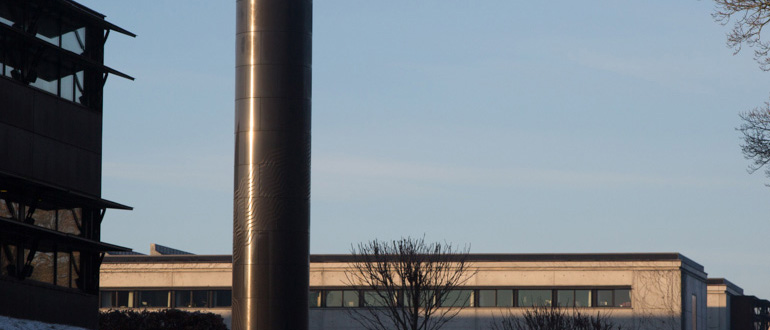Kursusbeskrivelse (kun på engelsk):
Danish title: Overfladeteknologi/SURF
English title: Surface Technology/SURF
Credits: 5 ECTS
Prerequisites: MECH1, ESY, EPHYS, ELEC, QUA
Aim:
The understanding of elementary processes in micro- and nanoscopic devices demands knowledge of the basic properties of solids and surfaces. The preparation of well defined surfaces and thin films in ultra high vacuum and the difference to “real world” surfaces will be discussed, together with characterization techniques like optical spectroscopy, Auger electron spectroscopy (AES), photoelectron spectroscopy (UPS and XPS), and scanning probe microscopies (SPM). The course spans the whole field from adsorption of single atoms and molecules on surfaces over surface chemistry and catalysis to “real-world” applications like computer hard-disks, optical coatings, and DVDs.
Competences:
Knowledge of the special properties of surfaces, allowing the student to understand latest developments in nanotechnology. Provide the students with knowledge of modern surface science techniques for characterisation of surfaces.
Subjects covered:
Lectures:
- Bulk and surface structure, reconstruction
- Ultra high vacuum
- Light and electron sources, experimental probes and techniques
- Electron diffraction and spectroscopy
- Vibration spectroscopy
- Photoelectron spectroscopy
- Auger electron spectroscopy
- Scanning probe microscopy
- Chemisorption and Physisorption
- Adsorption/Desorption
- Catalysis
- Growth and epitaxy of thin films and nanoparticles
- Laser surface processing
Laboratory exercises:
-
Low Energy Electron Diffraction from single crystalline surfaces
-
Auger electron spectroscopy
-
Thin film deposition: continuous thin films vs. island growth
Description:
At the end of the course the student is expected to be able to
- Explain methods to prepare clean surfaces
- Explain modern techniques to characterize surfaces
- Validate the potential of surface science for microelectronics industry
- Explain growth of thin films
Evaluation:
Oral exam: Danish 7 mark scale, internal examiner
Lab. work: Pass/fail, internal evaluation by teacher
Remarks regarding evaluation:
Examination based on content of lectures and lab exercises
Withdrawal: 7 days
Teaching method:
Lectures, 24 hours
Tutorials, 12 hours
Laboratory exercises, 12 hours
The course takes place in the autumn semester
Teacher: Frank Balzer
Books:
G. Cao: Nanostructures & Nanomaterials: Synthesis, Properties & Applications
K. Kolasinski: Surface Science. foundations of Catalysis and Nanoscience
